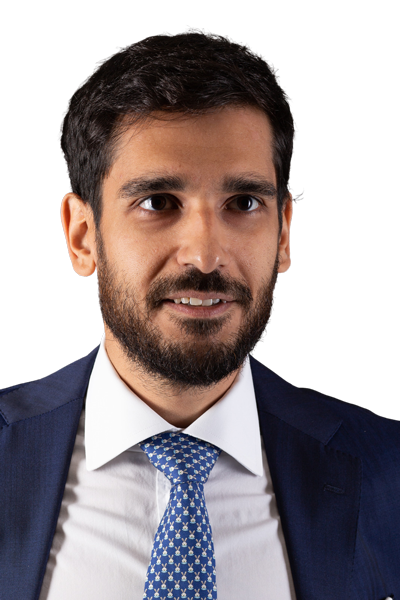
One degree, countless global pathways
In today's age of globalisation, a strong international legal practice has never been more important for lawyers. Increasingly, businesses and individuals must navigate a complex web of cross-border regulations to operate effectively in today's marketplace. From cross-border disputes to negotiating complex trade deals, the ability to think globally is key to success in the legal profession. As the world becomes increasingly interconnected, the demand for legal professionals with a strong international background is only likely to grow.
The burgeoning market for legal professionals with a global mindset certainly has not gone unnoticed by Alessandro Vecchio, who was already a qualified lawyer in Italy when he enrolled into the SMU Dual Master of Law (LLM) in Commercial Law programme. The Dual LLM programme provides the study of commercial law in two of the world’s major business and financial centres, London, and Singapore.
“When I was in the market for an LLM to pursue, I came across the unique programme provided by SMU and Queen Mary University of London to obtain a dual qualification,” relates Alessandro, who is now practising as a lawyer within Deloitte’s legal department in Milan.
“I saw it as an opportunity not to be missed; to gain a comprehensive understanding of cross-jurisdictions dynamics through a hands-on approach, living in two major commercial and financial hubs. It is fair to say that I am now an Italian qualified lawyer educated in three different jurisdictions.”
World at your fingertips
To remain competitive in the legal industry, today's business lawyers need to embrace a global point of view. By understanding the cultural and legal landscapes of other countries, lawyers can provide more value-added services to their clients and help them thrive in new markets, without making any missteps due to ignorance.
Designed to help lawyers and judicial officials get ahead in today’s volatile economy, the Dual LLM programme delivers a unique learning experience that melds domain expertise with a holistic perspective. It provides students with a comprehensive understanding of key aspects of commercial law from multiple perspectives, and in-depth knowledge of different regions' approaches and solutions for resolving problems.
Additionally, students will gain the critical thinking and problem-solving skills needed to be successful in this field. With a thorough understanding of the law and the ability to think creatively, graduates will be well-prepared to meet the challenges of a constantly changing legal landscape.
“My main career goal is not to be seen as a ‘regional lawyer’,” stresses Alessandro.
“Although I feel deeply rooted in my native jurisdiction’s dynamics, it is fair to say that I like to think of myself as a global cross-jurisdictions lawyer. In five years, I see myself as an established and respected global business lawyer capable of advising clients on the full array of commercial-related matters, either in private practice or in-house.”
Learning via hands-on experience
Hands-on learning is essential for any profession, and the legal profession is no exception. To be successful in law, students need to have a strong foundation in the theoretical concepts that make up the legal system. But they also need to be able to apply those concepts in a real-world setting. That's where hands-on learning comes in. It allows students to put what they learn in the classroom into practice, and see how it works in the real world — which is why the SMU Yong Pung How School of Law provides training in legal principles and how to apply them to solve new problems such as those arising from emerging technologies. Alessandro, for example, underwent modules in Blockchain and Governance, as well as IP Law and Policy: International and Asian perspectives.
“I felt that SMU’s approach to legal education is significantly different, especially compared to Italy,” shares Alessandro.
“While legal studies in Italy are traditionally focused on notions and intense study, and in the UK critical-thinking and critical approach is pivotal, I found the SMU approach way more devolved to hands-on studies with a significant focus on practice and real-life applications.”
The programme also opened doors to the Asian legal job market, as most recruiters for global firms were intrigued by the experience and knowledge he gained from the Dual LLM degree. In addition, the opportunity to interact with a diverse and international cohort led to the establishment of a strong global network - for example, Alessandro got in touch with a former classmate when he faced a professional issue based in her native jurisdiction.
“I loved working with my peers, we developed strong friendships and provided mutual help,” he explains, adding that he just might relocate again in the next five years to build a sound foundation in dealing with diverse cultures.
A choice destination for study, work and play
Having visited Singapore in the past, Alessandro did not think twice about furthering his studies here when he was researching LLM programmes. After all, Singapore is a popular choice with international law students because it offers a unique blend of Eastern and Western culture, and its legal system is heavily based on English common law. In addition, the city-state has a well-developed infrastructure, making it an ideal place to study and live.
“It is fair to say that the whole financial and commercial environment is definitely moving towards the East, namely, the Asia-Pacific region,” says Alessandro.
“Hence, there is no better time to be in Singapore. I do genuinely think that having achieved a degree in law in Singapore makes you future-proof.”
“Coming from Italy, the Singapore legal landscape was a thrill and I found more common ground with civil law than expected. Whether you are looking to relocate to Asia or simply boost your profile with an international outlook, you won’t find any better opportunity than SMU’s Dual LLM programme.”